Britpop: It was 25 years ago today that Britain taught the world to play
A quarter of a century ago Britain was out, loud and proud, and putting the guitar back into music. But did the welter of women-fronted Britpop bands such as Sleeper, Elastica and Catatonia create a lasting feminist legacy? Echobelly’s Sonya Madan isn’t so sure
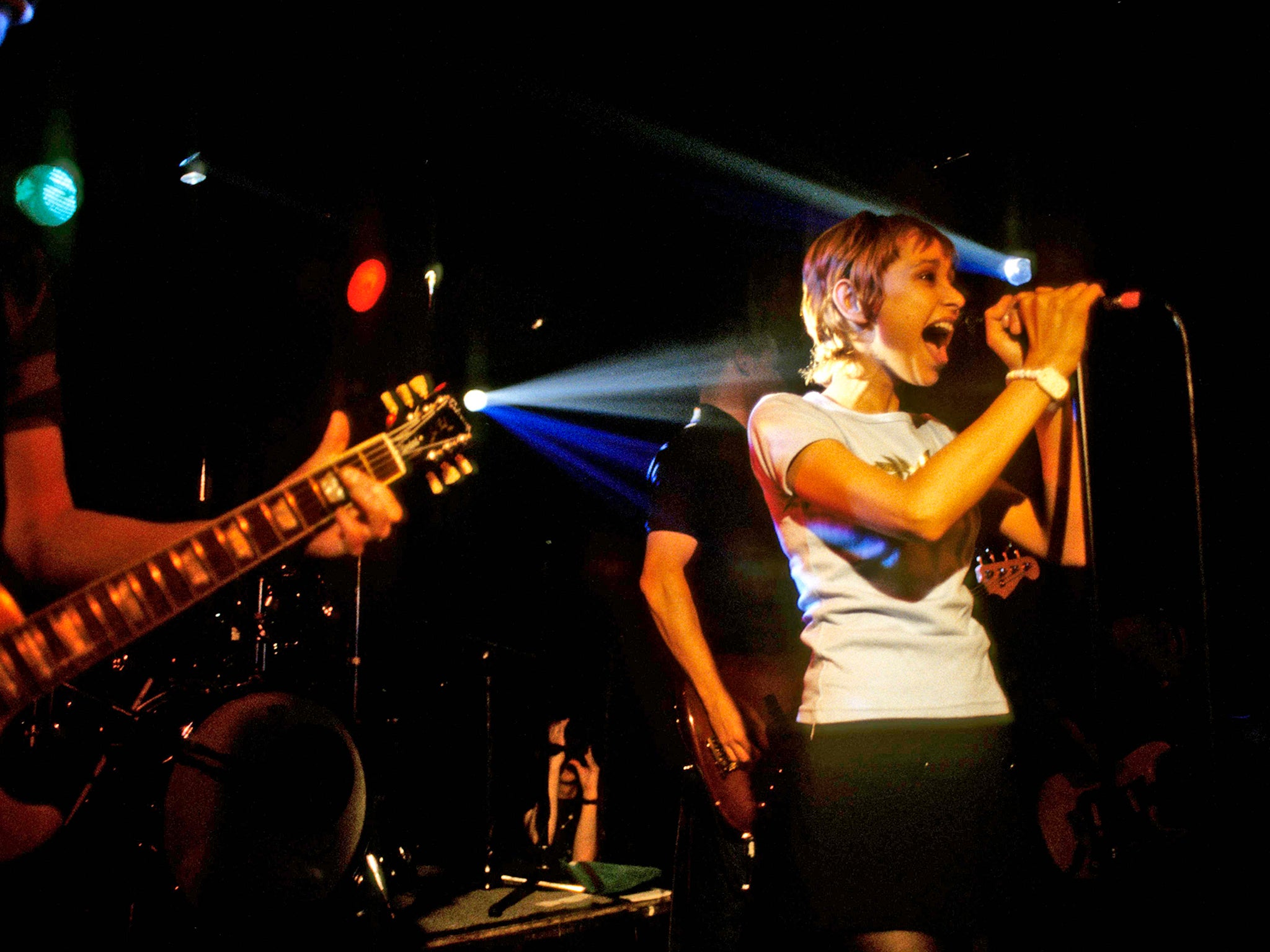
Your support helps us to tell the story
From reproductive rights to climate change to Big Tech, The Independent is on the ground when the story is developing. Whether it's investigating the financials of Elon Musk's pro-Trump PAC or producing our latest documentary, 'The A Word', which shines a light on the American women fighting for reproductive rights, we know how important it is to parse out the facts from the messaging.
At such a critical moment in US history, we need reporters on the ground. Your donation allows us to keep sending journalists to speak to both sides of the story.
The Independent is trusted by Americans across the entire political spectrum. And unlike many other quality news outlets, we choose not to lock Americans out of our reporting and analysis with paywalls. We believe quality journalism should be available to everyone, paid for by those who can afford it.
Your support makes all the difference.It was 25 years ago today, or thereabouts, that the Brits taught the world to play. For a brief and beautiful moment in time, Britannia was cool, it was perfectly fine to brandish the British flag without fear of being labelled racist, and the minutiae of English life was the poetry laid over the glorious return of great guitar pop.
Britpop had arrived, though back in April 1993 we didn’t really call it that then. But the elements that would create this cultural phenomenon had been gathering for the past couple of years, and if we want to identify a crucial tipping point moment we can perhaps point to that month’s issue of the dearly departed monthly music magazine Select.
On the cover was Suede’s Brett Anderson, whippet-thin and Bowie-belligerent, baring his stomach against a backdrop of the Union Flag. “Yanks Go Home!” chortled the strap-line.
Inside the magazine, the sudden wave of musical patriotic fervour was driven home with a graphic that nodded to the opening titles of Dad’s Army, images of the bands on the burgeoning British music scene pushing those pesky American grunge bands back across the Atlantic, with the Nirvana-baiting headline, “Who do you think you are kidding, Mr Cobain?”
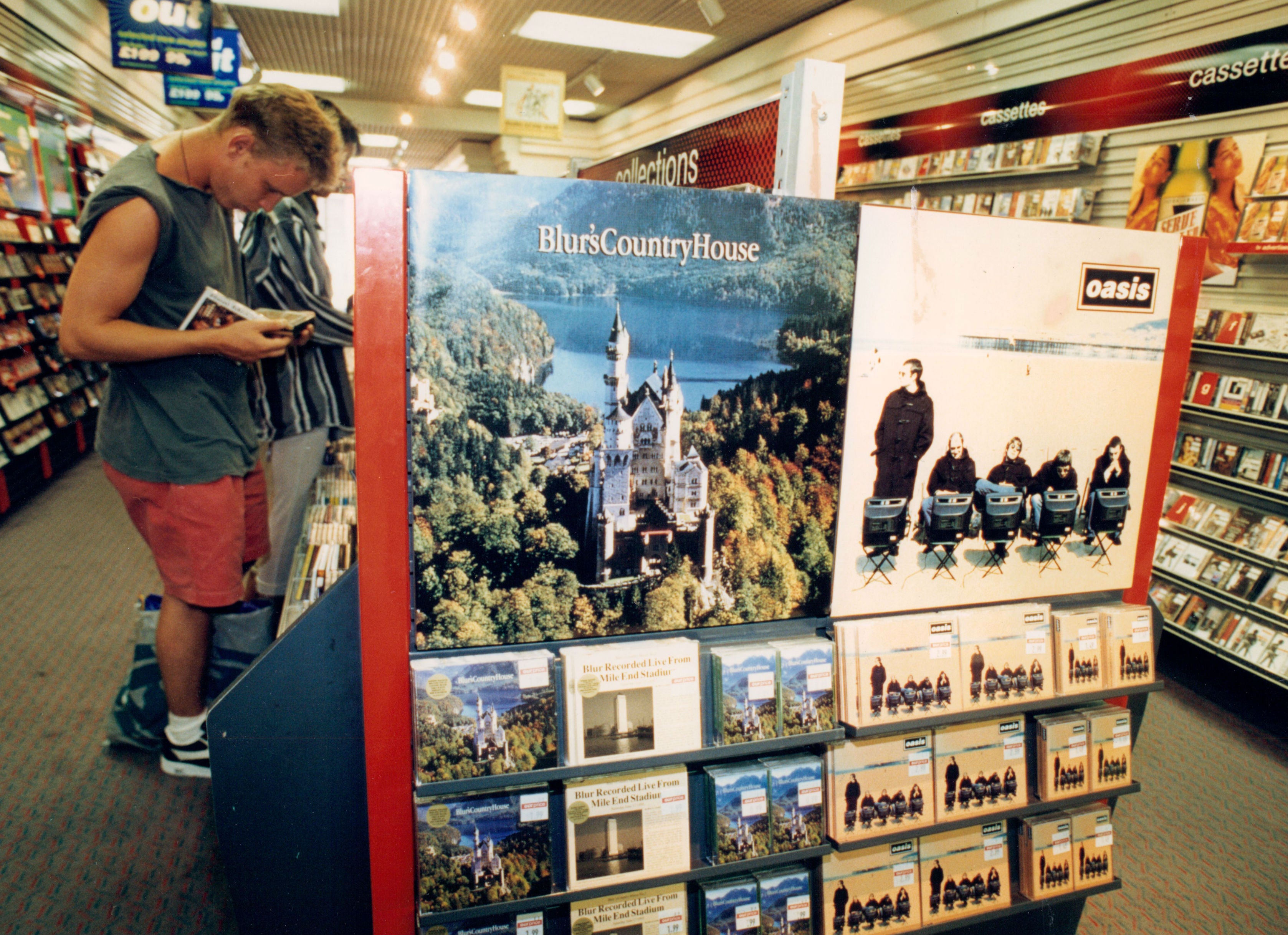
Features included interviews with Suede, of course, and a crop of British bands – not all of who would be folded into the Britpop cadre – including The Auteurs, St Etienne, Denim and Pulp. Then, the following month, Blur released their second album Modern Life Is Rubbish, their musicality referencing the likes of the Kinks and Small Faces with its exploration of very English mores. The sleeve even featured a painting of the none-more-British steam locomotive Mallard.
By 1994 Kurt Cobain was dead and Oasis had released their debut album Definitely, Maybe. America was out and Britpop was well and truly in. The subsequent couple of years become a blur (pun intended) of images… Oasis and Blur battling for the number one spot, even making the national evening news; the leading lights of Britpop invited to 10 Downing Street by Tony Blair; Liam Gallagher and Patsy Kensit in a Union Flag-draped bed on the cover of Vanity Fair with the legend London Swings Again; Pulp’s Jarvis Cocker flapping his arse at Michael Jackson at the Brits; football coming home as England hosted Euro 96; gangs of lads in Adidas trainers and tracksuit tops bellowing “Wonderwall” at the top of their voices in pubs.
But despite the inherent laddishness of the beer-football-music trinity of the Britpop era, it was notable for something else as well: the proliferation of female-fronted bands.
Most prominent were Justine Frischmann in Elastica, Louise Wener in Sleeper, Lauren Laverne in Kenickie, Sonya Aurora Madan and former Curve guitarist Debbie Smith in Echobelly, Pearl Lowe in Powder, and Wales’s finest, Catatonia, featuring Cerys Matthews.
These days you’ll find both Matthews and Laverne presenting their own BBC 6 Music radio shows (and Laverne also co-founded award-winning women-focused online magazine The Pool) while Sleeper have just finished a comeback tour and Echobelly last year released a new album, Anarchy and Alchemy.
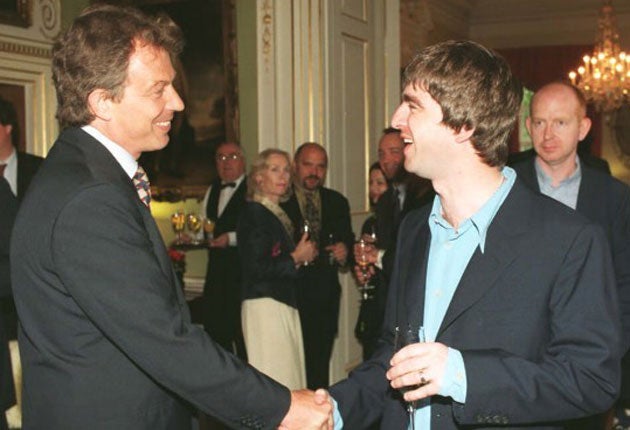
“I think it was in 1993, when I was living in Goodge Street and we used to hang out in a pub in Berwick St, Soho,” recalls Sonya Madan. “One night, we noticed a couple of guys sitting there who were dressed in the same style, Fred Perrys and Doc Martens. It wasn’t the fashion but more of a style statement and we clocked each other.”
The couple of guys turned out to be members of another band by the name of Blur. Madan says, “I remember Damon [Albarn] making some comment about our similar choice of attire. We’d never met before and it may sound trivial using a clothing style analogy, but it was more that we realised that another band was tuning into the same vein of British cultural identity.
“Britpop was very much a scene and a handy media label too. Everyone seemed to hang around various pubs, clubs and rehearsal rooms in London. Even bands that came from other parts of the country would be seen at the same places when they were in town.
“Music industry people would also be in those places so it was a lively and incestuous melting pot! We also used to tour with each other in the early days. We toured with Oasis in France and hung out together in New York where we both played shows and we toured with Blur in Germany.”
Unlike, say, grunge, Britpop wasn’t typified by a uniform music style. Elastica were different to Echobelly who were not really the same as Kenickie. It was a collective attitude, style and tone that unified them, and questioning what it actually meant to be British.

“I think that every band was exploring in their lyrics, their own version of what that identity meant to them. But even then, I was interested in actively exploring the role women have to play, in a time when it was not really encouraged, compared to lad culture and the idiosyncrasies of being British.”
In “Father, Ruler, King, Computer” with its lyrics, “Is it wrong to be alone? / An adventure of my own, / A celebration of myself and me, / Discovering all I can be, / The half a couple fantasy”, Madan “explored the role of women as I experienced it at the time”. She adds, “‘Give Her A Gun’ was also about the role of women, but more pertinent to growing up as an Asian woman.” Madan was born in Delhi, India, moving to London when she was very small. In “Give Her A Gun” she sings, “Let the fear dislocate, / Lest we frown upon the female aggressor, / Makes no sense, goes against the gender, / Let her anger curse the years of oppression…”
With so many women-fronted bands, Britpop must have been a fine time for feminism, you’d have thought. Madan isn’t so sure. She says, “I suppose it became a feature in that Britpop did include more women in popular music than was usual up until that point, and as A+R men – and they were mostly men – saw the potential of cashing in on the scene, they signed more bands with women in them.”
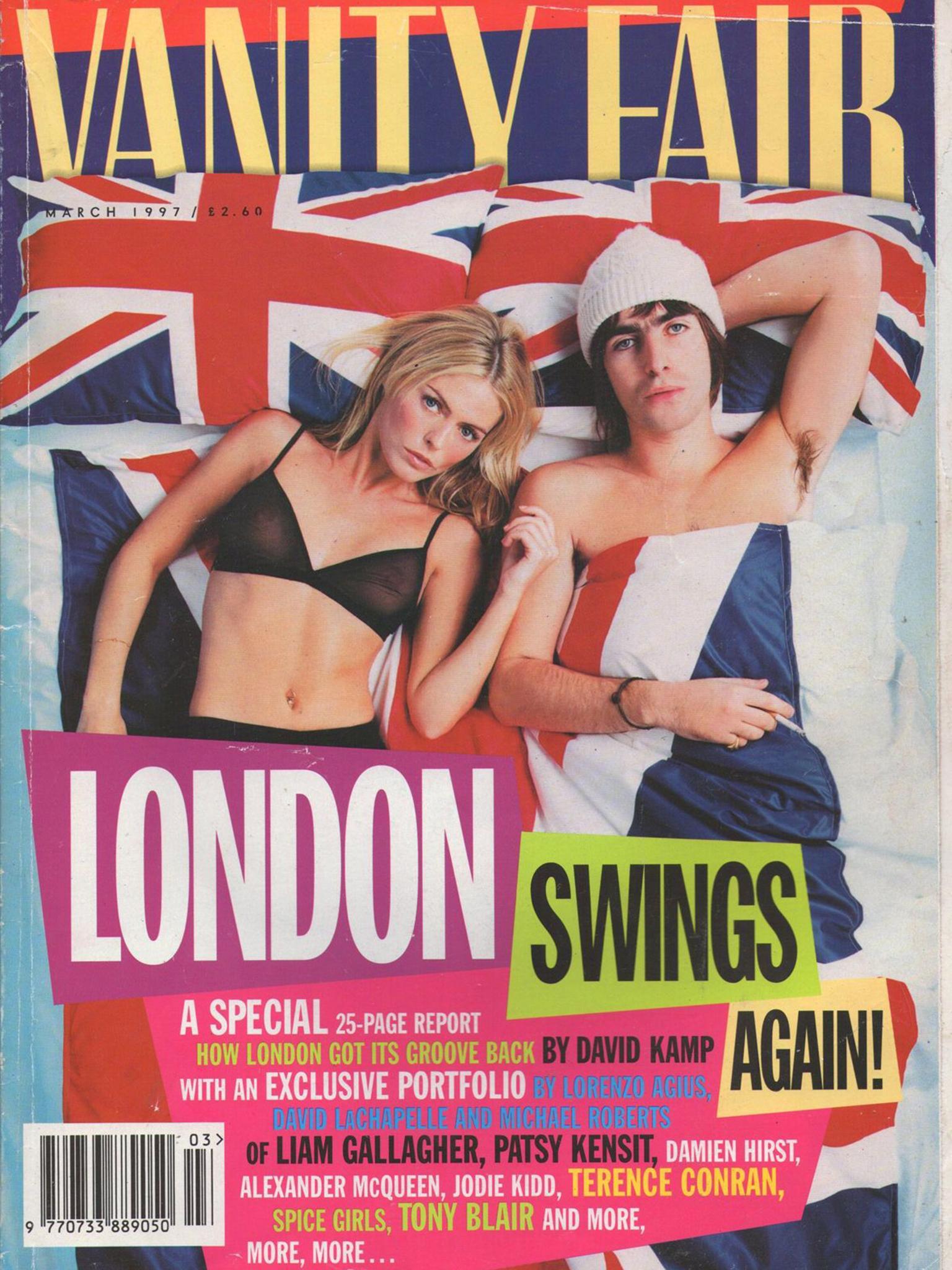
Still, it must have been a nice, inclusive, supportive atmosphere? Madan says thoughtfully, “It would have been really nice to have been friends with the other women, and there were a few really cool women around, but quite early on, I realised that it was never going to happen with some of them in particular.
“One of the first interviews I did was with Justine and Louise and they seemed to pal up together. The last question was whether we considered ourselves feminists, I said yes and they both said no.”
Louise Wener in particular got a lot of stick for not declaring herself a feminist, and in one interview deployed the phrase “feminists should shut up and shave”, with few people picking up on the fact she was quoting, tongue-in-cheek, from an episode of Knowing Me Knowing You with Alan Partridge. And you could hardly read an article on Justine Frischmann that didn’t reference the fact she had once been the girlfriend of Brett Anderson and was now the girlfriend of Damon Albarn. So perhaps Britpop wasn’t the feminist idyll it could have been.
Madan says, “The press really encouraged the rivalry and we were all younger and more naïve so I think things might be different now. Or perhaps not, ha ha! Interestingly, our American contemporaries were always really warm and open.
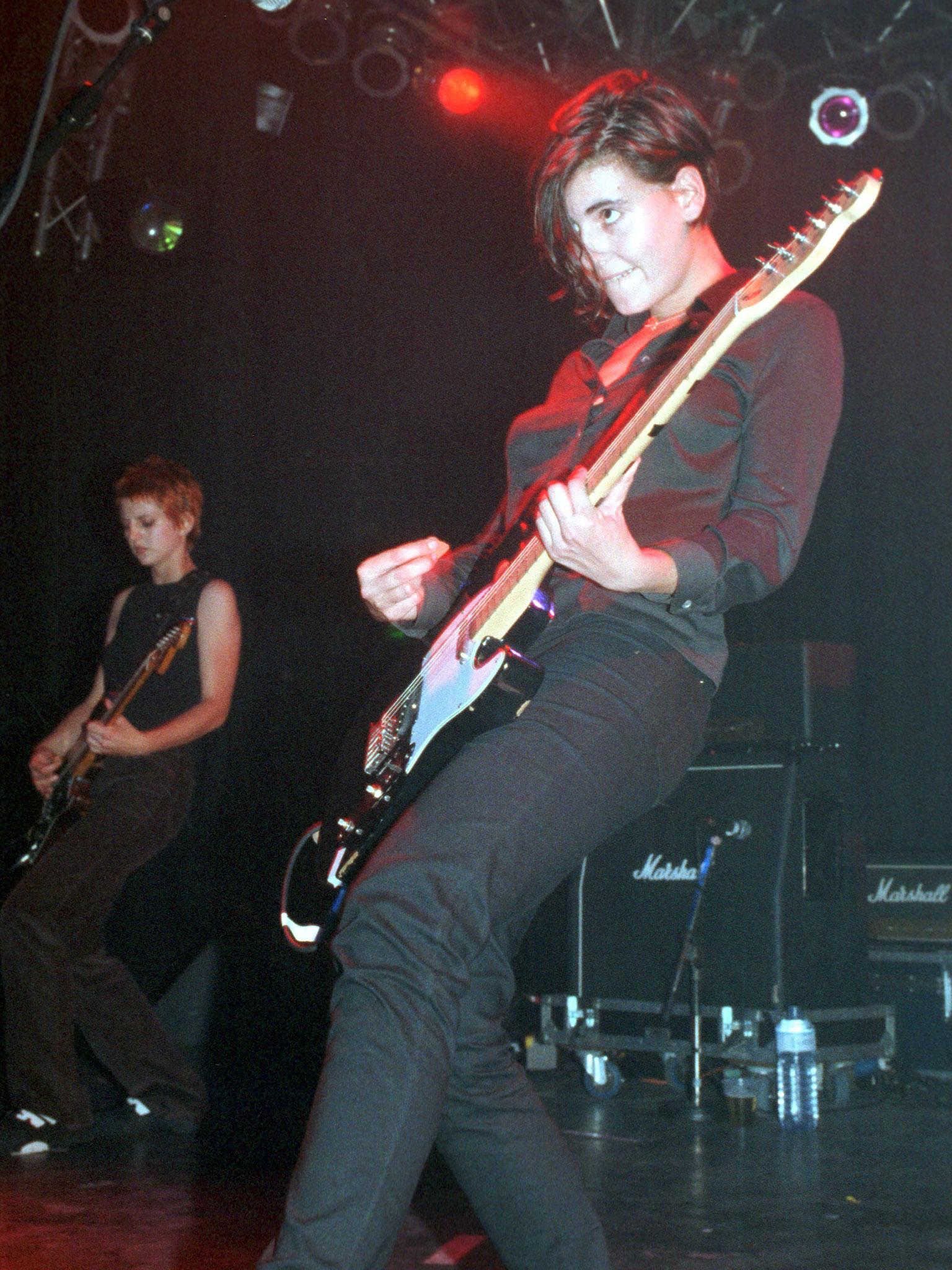
“Britpop wasn’t strictly a boy’s club as there were many strong females around, but it was a time of celebrating a kind of laddishness, hand in hand with an element of androgyny.
“Right now, women’s rights are such a hot topic and news stories are springing up everywhere, but then, you had to be a lot tougher and just get on with it. I remember an article in the NME about a band (they never amounted to anything), and one of the band members said what they would like to do to me in a sexual context and the NME printed it, unapologetically and in a condoning way. I was uncomfortable with that level of nastiness, even though you did learn to toughen up then.”
What Britpop did do was, like punk two decades earlier, give a voice to the working classes. Madan notes: “One thing I noticed with Oasis, was the genuine identification of a large percentage of mainly working-class lads who felt a real sense of connection with the band, where previously, they felt ignored.”
And she has many happy memories of the period. “It took off really quickly for us as we were signed after a handful of shows and being on stage became second nature to me very quickly,” says Madan. “I am quite a shy person but I was never scared of walking on stage and connecting with the audience. The more raucous the better, I could always hold my own, so there was an element of self-discovery.
“One of the first reviews (by a female journalist) said ‘Echobelly has a front-person that any band would kill for’. We were a great live band, even if I say so myself, and it was a hectic whirlwind of a lifestyle for a few years.
“The only real frustration was that in order for you to make it, you had to have the backing of a good team of people, that is: the record company, a decent manager and a focused PR and plugging team. We were openly ignored by some people at our label, Sony, in favour of Oasis as we were moved over to them at the same time. Sony were actually funding both the indie labels that Echobelly and Oasis were officially signed to so we didn’t stand a chance.
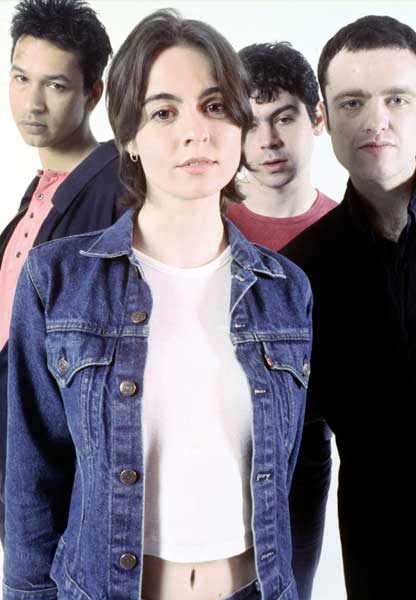
“We toured together in France and we got a genuinely better reaction from the audience but were told to our faces that they were the priority. Our managers, sad to say, were useless and our PR... well, put it this way, we went on a world tour and when I got back, one of the PR people asked me if I’d just been on holiday!”
The music press today is almost non-existent compared to what it was in the 1990s, with the NME this year folding its print operation. But the media had a lot of power when it came to bands, and rarely pulled punches.
“I think you had to be pretty tough to take the blows with the accolades as the music press wasn’t so ‘vanilla’ as it is now,” says Madan. “Hitting below the belt was common practice. Anything for a good story, as they say. Your sex did not matter and everyone was fair game to be put up and knocked down. I remember hearing journalists talking about how they were going to slate a particular band in their next article.”
Tough times, but surely the legacy of Britpop is a positive one for the women in the music industry today? Madan isn’t entirely convinced that’s the case.
“I think that modern music is so far removed from the Britpop baton that the Britpop era has been largely ignored, until recently,” she muses. “I don’t think that women in music today even recognise any benefit that may have come from what we did.
“To come armed with a diploma from one of these music colleges that are springing up everywhere is now the norm, but it would have been heresy in terms of authenticity during Britpop and even more so during punk.
“The legacy that women-centric bands, by which I mean real artists rather than ‘entertainers’, give to any era is in making it acceptable to be judged by your talent rather than your bra size and making it OK not to have to dress in a sexually explicit manner by default in every music video, as is now the norm.”
Join our commenting forum
Join thought-provoking conversations, follow other Independent readers and see their replies
Comments